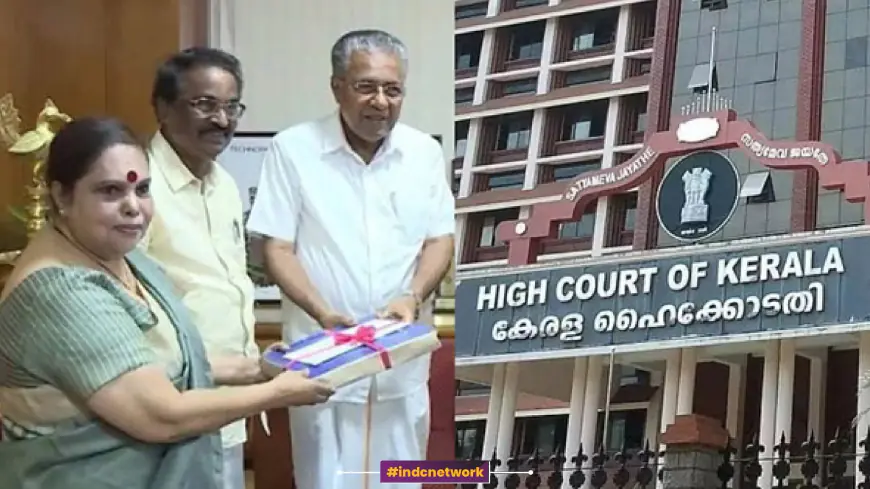Justice Hema Committee Report on the Illegal Practice of Bans in the Malayalam Film Industry
The Justice Hema Committee report has expressed deep concern over the practice of banning people from work in the Malayalam film industry. According to the report, this practice is illegal and unauthorized, and is controlled by a powerful group that holds significant influence over the industry. The report has termed this practice unconstitutional and stressed the need to take strict action against it.

INDC Network : Kochi (Kerla) : The Justice Hema Committee report has raised serious questions on the practice of banning people from working in the Malayalam film industry, which the panel has termed as illegal and unauthorised. The report highlights the informal restrictions that prevail in the Malayalam film industry, which often deprive people of work opportunities. The practice has long been a matter of controversy, and despite major cinema organisations claiming to support the welfare of their members and film personalities, such restrictions have become common in the industry.
Several prominent personalities in the Malayalam film industry, including veteran actors like Sukumaran and Thilakan and filmmakers like Vinayan, have fallen prey to these informal restrictions. These restrictions prevented them from working in the film industry for long periods of time, which severely affected their careers and lives. The Justice Hema Committee report, released on Monday, has confirmed the practice as illegal and unauthorised. The report states that these restrictions are more common among men than women, which were the issues raised before the panel. It also mentioned that the Malayalam film industry has a powerful group of about 10-15 people who control the industry. These people could be actors, producers, distributors, exhibitors or directors, and they are all men who have earned considerable fame and wealth. According to the report, this powerful group has so much control that they can ban any individual from cinema for trivial reasons.
The committee report states that trivial reasons are enough for these bans, such as insulting or being disliked by a member of a powerful group. Following this, other members unite to ostracise that person from work. This group also has the ability to ban producers and directors, regardless of their competence. The report also points out that these bans are usually not documented in writing, but are communicated verbally. This situation makes it difficult for victims to seek redressal, as there is no documentary evidence of these bans.
In addition, the Committee also found that certain associations and unions also cooperate in preventing actors from working in cinema. These bans are kept strictly confidential, and production controllers play a key role in enforcing them. A witness told the Committee that the production controller may act to keep an actor away from work by providing false information to the producer, such as publicising him or her as a 'me-too' person. However, since there is no evidence of these actions, they can easily be dismissed as conspiracy.
The Committee stressed in its report that this powerful group has no authority to ban any individual from working in cinema. This practice is illegal and unconstitutional. However, actors have become powerful due to their wealth and fame, which gives them significant influence in deciding which roles will be played and who will play them. Some women also brought to the attention of the Committee that this power group uses various methods to harm their careers, so that they lose opportunities in cinema. Members of the WCC (Women in Cinema Collective) believe that they were banned because they raised their voice against undesirable practices prevalent in the industry.
The committee report also brought forth an instance when a well-known actor referred to this power group in Malayalam cinema as a "Mafia Sangham" (mafia gang). The actor, who was considered one of the best actors in the industry, was ostracised by this group when 10-15 people united against him. When he attempted to make a living by working in TV serials, the group exerted its influence there too, further hindering his career. The Justice Hema Committee report has raised serious questions on this illegal and unauthorised practice in the Malayalam film industry and emphasised the need for immediate attention to it. The report has clarified that such informal bans are unconstitutional and must be abolished.
What's Your Reaction?









































































































































































